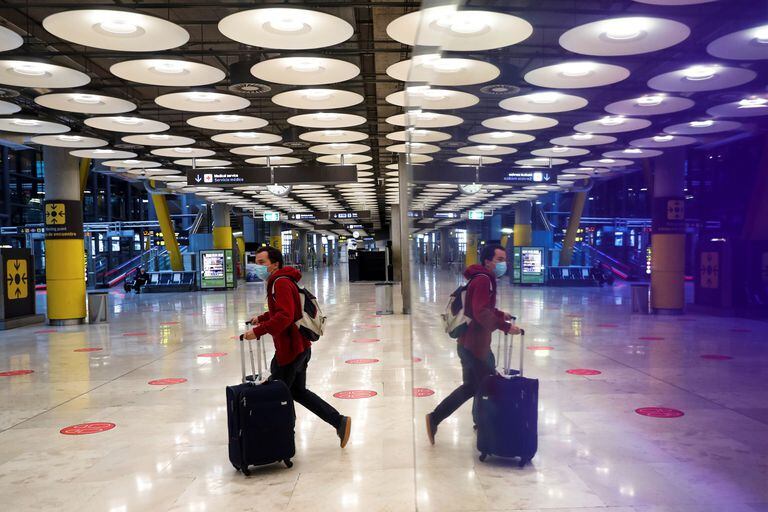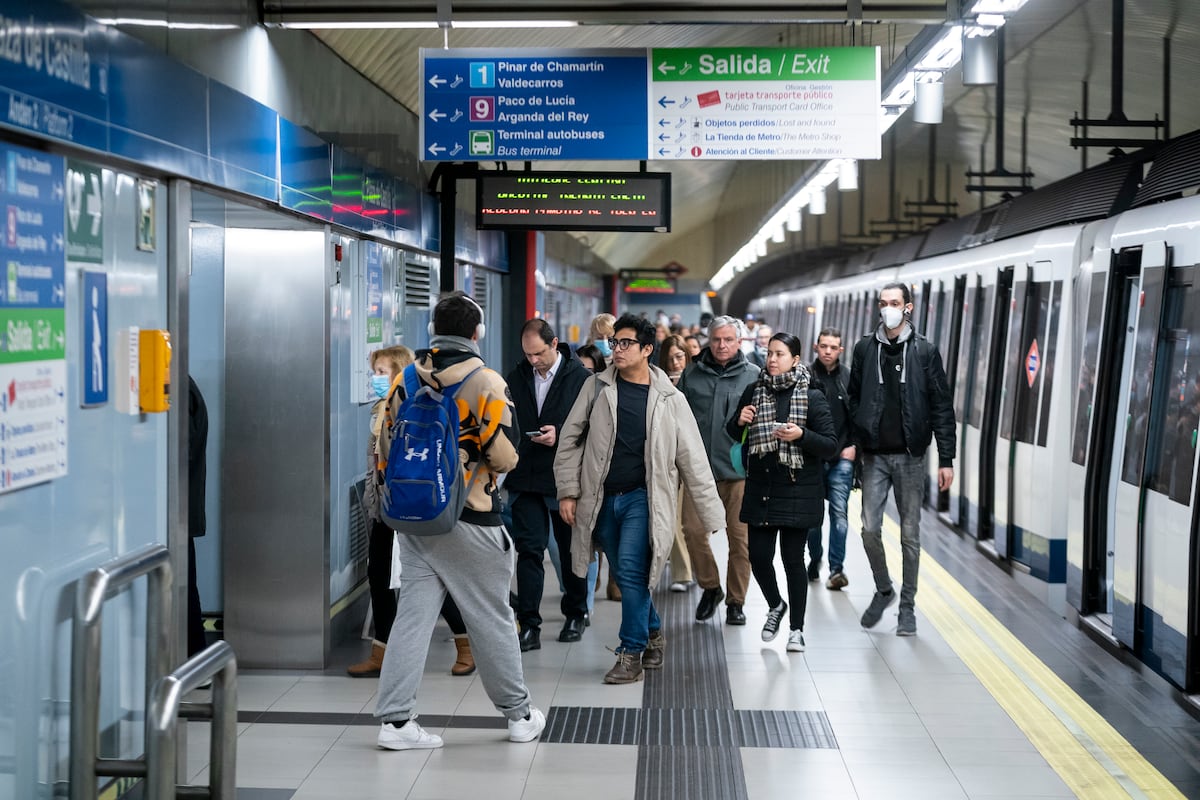A passenger walks through the Barajas airport, in Madrid, on February 3.Emilio Naranjo / EFE
In recent weeks, Madrid has been in the eye of the hurricane by becoming the destination to which the French flee to go partying, sometimes with illegal gatherings.
A kind of lawless place for those looking for an escape from the harsh restrictions in their country against the coronavirus: in the Spanish capital they find freedom, open hospitality and the possibility of going to party, despite the covid.
However, the January data published by the INE deny the biggest: the French traveled to Spain for leisure, yes, but not to Madrid especially.
The preferred destinations were Catalonia and the Valencian Community (a third of the total between the two), while the Community of Madrid only welcomed 5.5% of those who arrived for tourism.
Specifically, during the first month of the year 117,625 French tourists arrived in Spain: 72,513 only for leisure and tourism, according to the Frontur statistics.
Of these, 13,565 went to Catalonia - despite the harsh restrictions imposed by the Government and the closure of the restoration -, 11,116 to the Valencian Community, 8,416 to the Canary Islands, 6,847 to the Basque Country, 6,390 to Castilla y León, 5,647 to Andalusia … And only later, as the seventh option, is the Community of Madrid, where 4,022 French people traveled for leisure.
Spain: closed for national tourism, open for Europeans
French tourists seek freedom of movement in Madrid
Thus, although the figures for February are still unknown and the age of travelers to each destination is not specified, the data does not support the stories of a new Madrid movement of French from bar to bar and from party to clandestine party.
If this has happened, the chances are greater in places in Catalonia or the Valencian Community, for example, which have tripled the number of travelers from the French country.
But it is that they have even preferred less touristy regions such as the Basque Country or Castilla y León before Madrid, partly because of their destinations outside the big cities, far from the lights and close to nature.
Of course, it is not possible to fall into the generalization either: not all the French who have arrived in Spain were looking to party.
This idea of Madrid as a party place for residents of France has even reached the political debate, in which the Community is accused of allowing these excesses with its more lax measures to control the third wave of COVID infections in contrast to the harsh restrictions of other autonomies or France itself for months.
Especially with the bars and restaurants in the neighboring country closed tight and with the curfew in force, there was speculation about the temptation of many young people to flee temporarily to the capital of Spain in search of something similar to drunken tourism.
A suspicion that goes perfectly with some images of parties dismantled by the police in which a French citizen participated.
Most, no mandatory PCR
However, the figures on how tourists who continue to arrive in Spain for leisure are distributed do not corroborate the idea that Madrid is the epicenter of the gap in times of coronavirus.
Nor if the fall in visitors by autonomy is analyzed, since the Community is the one that lost the most French travelers (-90%), well above the average for the country as a whole (-79%).
Among those that have lost the least French tourists this January, the Balearic Islands (-51%) and the Valencian Community (-72%) stand out.
All this, although it may be contradictory, occurred while most of the Spanish autonomous communities were closed perimeter.
That is, they did not allow the arrival of people from other regions if it was not for work or for a just cause, but they did allow foreigners to travel.
The reason?
Restrictions on mobility after the summer are not imposed by the central government, which delegated this capacity to the autonomies.
And these can prevent movements between territories, but not prohibit access to European travelers.
In that case, it would have to be Spain that notified the closure of borders, an extreme that has not occurred except for the restriction of non-essential trips from the United Kingdom - in force since December 21 - and from third countries of outside the EU.
With this open space for the leisure of Europeans, despite everything, there were certain restrictions.
For example, tourists arriving by plane or boat to the country had to present a negative PCR.
The same as for movements from the Peninsula to the Canary Islands, for example.
However, this requirement hides some nuances that have allowed the majority of French who arrived for tourism to skip them to the bullfighting: those who traveled by road were not obliged to present a PCR or any other test that certified to be free of the covid.
In fact, of the 72,513 travelers from the French country who arrived in Spain for leisure, three out of four did so by road (54,361 people). And in its distribution by autonomy, the ones closest to the border stand out: 11,048 travelers arrived in Catalonia by car, 9,202 in the Valencian Community and 6,847 in the Basque Country. Even Castilla y León (6,111) and Andalusia (4,604) received more travelers from the neighboring country by road than the Community of Madrid (1,340). That is, they receive more French tourists and with less sanitary control than the capital, although it is this one that is in the focus of illegal parties.









